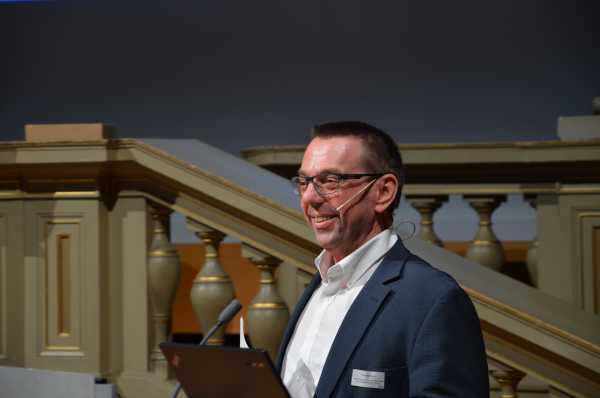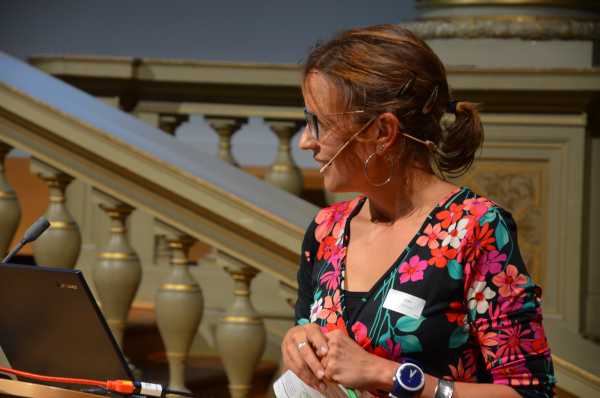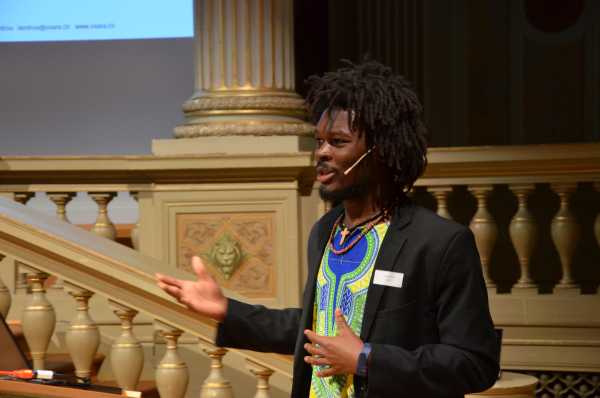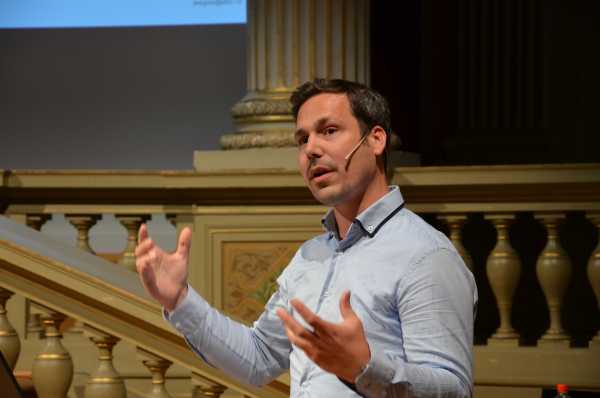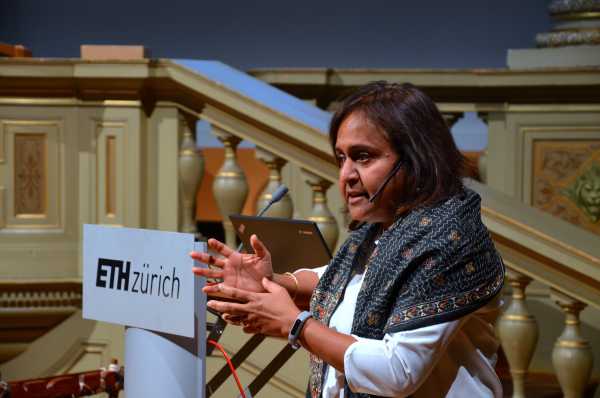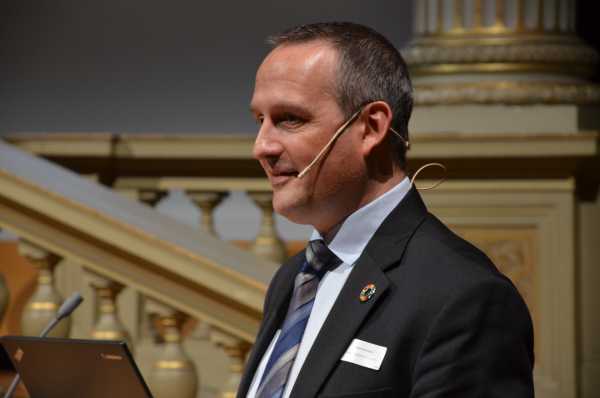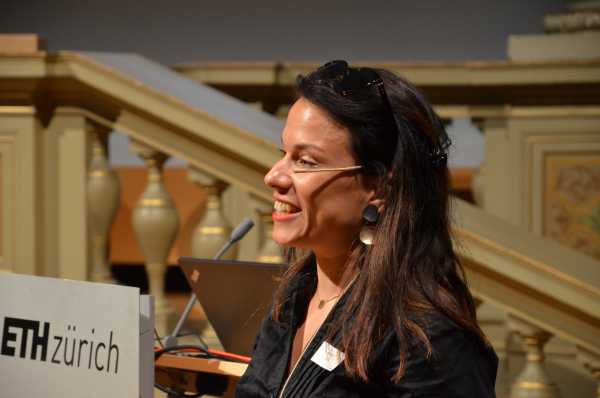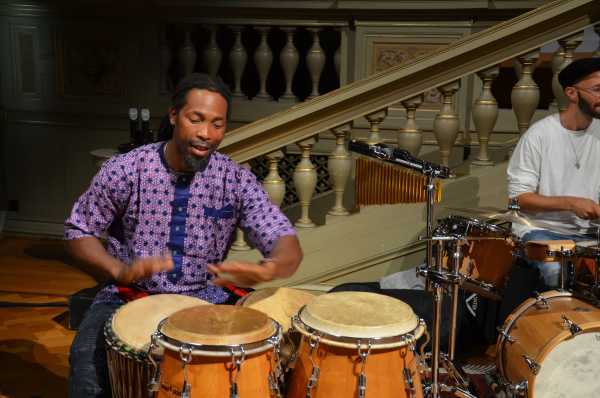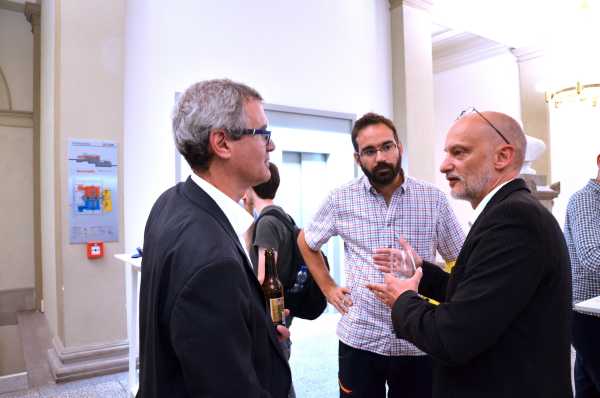ETH4D Launch Event gathers and connects people
The ETH for Development Launch Event took place on Wednesday September 18th and gathered over 120 people from research, NGOs and industry. The event officially inaugurated this ETH-wide initiative, backed by the ETH+ program, that aims to drive new research and education initiatives to identify and implement solutions for poverty reduction.
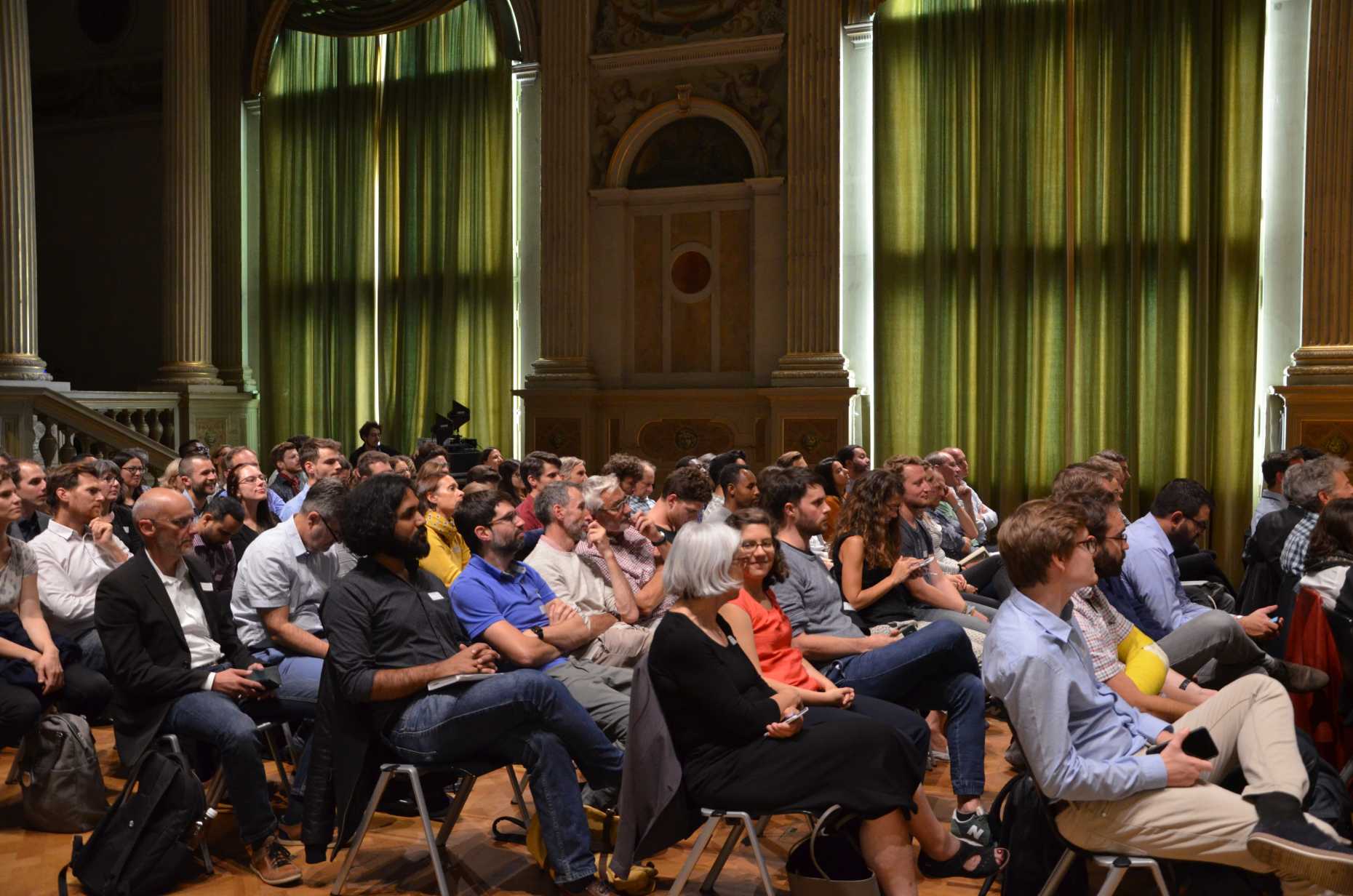
On September 18th, the ETH4D initiative was officially inaugurated during the Launch Event, which gathered more than 120 people from research groups from various departments, NGOs, industry, policymakers as well as the general public. The public was able to enjoy the exciting inputs and different perspectives of the invited speakers, coming from various backgrounds.
ETH Vice President for Human Resources and Infrastructure Prof. Ulrich Weidmann informed the public that ETH Zurich is one of the actors strongly committed to promoting the Agenda 2030 and that it is happy to back this initiative that will not only address environmental sustainability, but also social sustainability.
Prof. Isabel Günther, Professor of the Development Economics, director of NADEL and one of the founders of this initiative, argued that for an innovation, you need more than just a brilliant idea: it should also have an impact on people’s lives. She then explained how ETH4D will accomplish this by being active in the following areas:
- Innovation (for the global population)
- Learning (teaching future leaders to think sustainable, responsible and global)
- Exchange (so that Innovation and Learning in Switzerland and partner countries can benefit from each other)
Dr. Gnanli Landrou, a Pioneer Fellow at ETH Zurich and founder of Oxara, an ETH spin-off, presented how his work, the development of sustainable concrete, is achieving circular economy and sustainability at lower cost. He inspired the crowd to put design innovations, like his, so that they profit communities in all parts of the world.
Dr. Jan Dirk Wegner, founder and head of the EcoVision Lab, showed how technology can contribute to development, by for example developing automated and transparent methods that scale to the Global South, whilst protecting nature and local communities and also fostering economical development. He encouraged researchers to collaborate with industrial partners and civil society and that by communicating well with each other and demystifying technology, a lot of low-hanging fruits can be achieved
Rupa Mukerji, Director of Advisory Services at Helvetas presented the four Innovation areas at Helvetas (Collaborate, Engage, Streamline and Enable), based on the axes People -Technology and Backoffice - Impact Programming with examples of programs in each area, and concluded with the statement that partnerships are key.
Reto Grüninger, Head of Division Latin America and the Carribean at the Swiss Agency for Development, encouraged everyone, from research to civil society to policy makers, to strive to communicate their results clearly so that others can put them to good use. He also inspired the public to be leaders by challenging the people around them in an energising manner.
Prof. Edoardo Mazza, Professor for Mechanics at the Institute of Mechanical Systems and member of ETH4D, used examples on his personal upbringing to explain the importance of educating future leaders and how ETH4D plans on achieving that through academic and industrial partnerships in Africa.
Dr. Adina Rom, Executive Director of ETH4D, concluded the presentations by encouraging the crowd to become part of ETH4D by applying for the Research Challenges and inviting them to create networks and start collaborations.
Not only did the event combine science and society with the different speakers, but it also bridged art and science as there were alternating sessions between presentations and live music. Musicians Emanuel Riederer, Yamoussa Sylla and Massa Kone filled the historic hall with an energetic atmosphere, using only percussion and their voices. At the apéro riche afterwards, many fruitful discussions were held, out of which potential new collaborations could spur out of.
Starting as a collaboration between social sciences and engineering, ETH4D became an ETH-wide initiative involving 8 departments and 23 professors after being backed by the ETH+ program. Many more members and departments are expected to join, as the initiative is open to any ETH professor or unit. It will leverage and link the existing efforts of individual research groups, teaching programs, and units at ETH and create new synergies between engineering, social sciences, and natural sciences, as well as between science and society.
ETH4D will also facilitate close collaborations with partners in low-income countries. Through its activities in Innovation, Teaching and Exchange, ETH4D aims to develop, test and scale solutions for poverty and inequality reduction and to educate future leaders to work towards global sustainable development.
